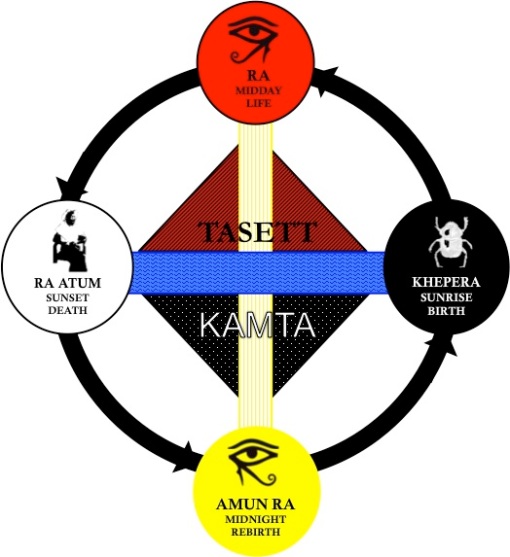Hetepu (Peace & Blessings) Family.
You know what? When you embark upon a spiritual path sometimes you need a reminder of why you perform certain practices because we are living in peril times that encourage us to give into our ego, our lower self, or Set. Ancestor veneration reminds us that we stand on the shoulders of those who came before us and that whenever we cannot find a solution to our problem from the available physical resources. We need to go within.

Wikimedia Commons
So, I was talking to one of my former math students who is from Vietnam about some of the food traditions they have in their country. They were telling me how they immigrated to the United States with their parents when they were three years old and, how they made it a custom to visit their home country every two years. As we talked, they told me how their food was so different from the American diet because they prepare fresh vegetables every day to eat alongside their meats, rice and/or noodles. As they were telling me this, it seemed to have slipped but they mentioned how they offer fruit and incense to their ancestors.
Not skipping a beat to make them feel comfortable talking to me about this spiritual practice, I remarked, “Yes, I offer a candle, incense and food to my ancestors as well.”
Feeling somewhat at ease, they continued talking and began asking them more questions about how they honor their ancestors like how many days during the week do they perform this rite and what types of food are offered. They told me that usually they simply offer a mango, which is different from the oranges that are offered by many Chinese practitioners.

Then, I asked “Do you burn money for your ancestors?” To which they replied they do but usually on special occasions.

For the most part, all they could tell me was that everything that they are doing usually tradition. We talked for a little bit more and then parted ways because we both had separate engagements, but it got me thinking…
I don’t recall seeing a lot of Asian people living in poverty. Now, I am not saying that there are not any financially poor Asians living in the United States. I am just saying that I have not seen many and maybe it is because they regularly honor their ancestors.

The reason my former student and I could have such a pleasant conversation about the ancestors was because as far as I could tell. The Asian understanding of the afterlife is similar to the thoughts of the Maa Aankh, which is that the dead (in KAMTA) and the living (TASETT) are dependent upon one another. The relationship between the living and dead is symbolized in the Story of Osar as Hru need for Osar in order to defeat Set. Coincidentally, this is the basis of Kemetic Spirituality
From what I could assess from my student is that by specifically calling their ancestor by name and stating that they are giving them an offering of food, drink, money, gifts, etc., so that they can use in their realm. The hope (belief) was that the ancestor would give them the things they need in order to live in the physical world.
Remember, there is no right or wrong way to make an offering to your aakhu (ancestors) but when you make an offering to your aakhu. You are in essence giving them energy, which is basically taking something from the physical world and giving it to the spiritual world. For instance, if you wanted to offer a $5 bill, then once you put that money on the altar, it can no longer be used to buy physical things because that money belongs to the dead. The same effect can be achieved by burning Spirit Money or Heaven Notes.

Understand, this is not say that by honoring one’s ancestors you will not experience financial hardships. Also, do not err in thinking that all you have to do is honor your aakhu and blessings will fall out of the sky. This is a spiritual practice that will help you to remember that everything that physically exists comes from an invisible spiritual source. By giving your anxieties, worries and fears to your ancestors, you will find most of your problems will easily resolve themselves when this ritual is done regularly.
Hetepu
For more see Honoring the Ancestors the Kemetic Shaman Way.
